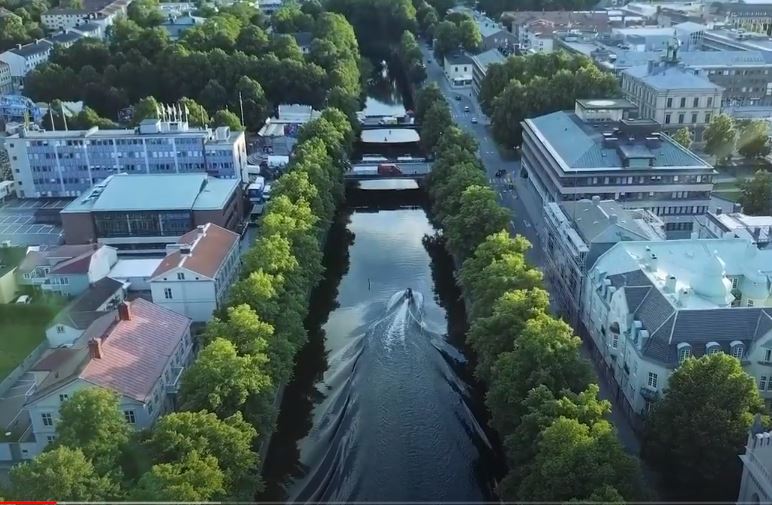Working to develop industry best practices and community prosperity in Sweden

Microsoft partnered with UN-Habitat to assess how best to build and establish a sustainable community center. Through pilot studies in Ireland and Sweden, UN-Habitat offered expert urban planning recommendations for future datacenter community sustainability.
In 2019, Microsoft contributed funding to UN-Habitat to launch pilot studies in Ireland and Sweden to understand how to best engage in, and contribute to, a new community when building and establishing a datacenter. UN-Habitat provides their specialized expertise in urban planning and gives recommendations for future datacenter community sustainability. The partnership will allow Microsoft to build and operate datacenters that have measurable positive impact. Pilot engagements have kicked off in Gävle and Sandviken, Sweden, and Dublin, Ireland.

Learning from experiences in Sweden
The engagements in Sweden are already benefiting Microsoft. “Gävle-Sandviken are providing a service to us, to help build our level of sophistication in urban planning. They help us understand the points of connection we need to be making with the right people in these cities in order to be most successful, both upon entry and upon growing our presence in these communities. This brings a level of trust when we engage with communities from the beginning,” says Jim Hanna, Microsoft Director of Datacenter Community Development.
Even though the two municipalities have much of their urban planning processes in place, Klara Wirdby, Business Strategist at Gävle municipality explains, “Having great stakeholders like Microsoft and UN-Habitat involved opened our minds, seeing ourselves as part of a global context and seeing that we can be a forerunner to other communities. We are now entering the digitalization era. How do we develop 21
-century communities?” UN-Habitat’s Urban Planner and Participatory Planning Specialist Thomas Stoll says, “We suggested two full-day workshops for scenario planning, together with the municipalities and Microsoft. We found a number of people, organizations, and companies within the local community and put together a set of tools, methods, and processes that capture all of the good things happening and made a long-term plan for future opportunities.”
Committing to a long-term partnership with UN-Habitat and global communities
This is just the start of what will be a mutually beneficial partnership, showing long-term commitment all around. As Elisabeth Hansson, Head of Business and Trade Municipality of Sandviken said, “When Microsoft joined this collaboration with UN-Habitat and engaged with Gävle-Sandviken, it showed a long-term engagement. It’s important for community leaders and members to understand what this industry can bring us. How can we work for a better future?”
UN-Habitat, headquartered in Nairobi, Kenya, has worked in communities around the globe for the past 40 years, focusing on improving quality of life in an urbanizing world. UN-Habitat develops best practices and policy standards to build inclusive, safe, resilient, and sustainable cities.
In order to improve future datacenter development and Microsoft’s impact in existing datacenter communities, UN-Habitat first measures existing prosperity levels in these geographic areas. Then, using best practices and toolkits developed by UN-Habitat, Microsoft can make the right investments that align with the community’s existing vision, priorities, and investments to drive prosperity. The ultimate goal is to create scalable models around expanding datacenter operations, but, according to Hanna, the work will also assist local communities in learning how to deal with the technology industry as it moves into new geographies. UN-Habitat aims to repurpose learnings from this engagement and provide guidance to local governments around the world.
“When Microsoft joined this collaboration with UN-Habitat and engaged with Gävle-Sandviken, it showed a long-term engagement. It’s important for community leaders and members to understand what this industry can bring us. How can we work for a better future?”
—Elisabeth Hansson, Head of Business and Trade Municipality of Sandviken



